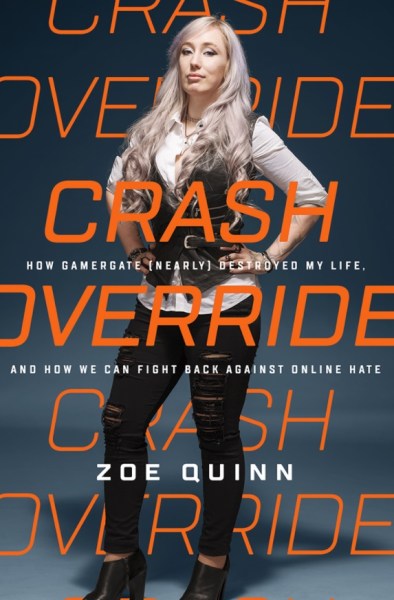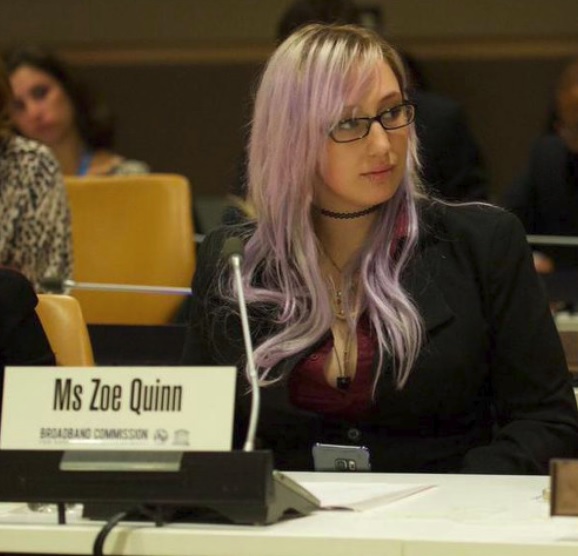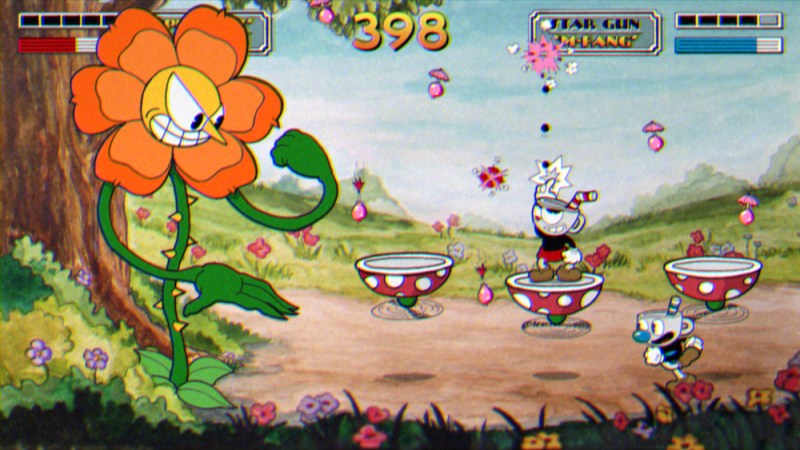In August 2014, Zoe Quinn found herself under the Eye of Sauron. The reference to J.R.R. Tolkien’s evil character with a searing, burning eye is an apt way to describe the Internet haters that came down on top of the game developer during the Gamergate controversy.
Quinn became the central target of the mob, and for two years she dealt with the personal attacks, doxxing, and continuous spotlight. She was accused of sleeping with journalists and others for professional advancement, including getting positive reviews for her game Depression Quest, or at least tapping her friends to get positive press. Those claims were spurious at best, but they spread across the Internet and created a movement that was stoked by the likes of former Breitbart writer Milo Yiannopoulos.
That took a huge toll on Quinn and almost destroyed her life. But she has bounced back from the hatred. She wrote a book, Crash Override, chronicling her Gamergate experience. And she has created the Crash Override Network, an advocacy group she started to help people who are experiencing online abuse. Quinn is also working on a new game that she says will be a comedy.
Her friend Anita Sarkeesian, founder of Feminist Frequency, called Quinn’s book a “compelling personal history of the woman with a bullseye on her back.” I found her description of Internet hate from within the eye of the storm to be clear-eyed and gripping, as I experienced a small version of that myself with my own Cuphead controversy. There were times in the height of Gamergate when Quinn felt overwhelmed that false information was going to rule the day. And that was in the days before “fake news” was a household phrase.
I have corresponded with Gamergate fans, and I have heard what they have to say about Quinn. In this particular forum, I am giving Quinn the floor in a wide-ranging conversation about what happened and how she has responded. She writes and talks about herself with an unflinching eye, saying she is far from the ideal person to lead a cause. She describes what it’s like to be in the social media storm, and offers advice on how to survive it. We talked for more than an hour about her experiences and what she’s doing next. It was a nice conversation, brought about by a shared experience of being the object of hatred and trying to move beyond it.
Here’s an edited transcript of part one of our interview. Part two will run tomorrow.

Above: Zoe Quinn’s book Crash Override chronicles her Gamergate experience and how she is fighting back.
GamesBeat: Maybe the opening question should be, what’s a good thing to talk about at this point for you?
Zoe Quinn: I’m still pretty much an open book. When it comes to specifics of some of the rumors and stuff people have made up about me—usually it doesn’t circulate that far anyway. I try to avoid addressing specific conspiracy theories out there. Some of them were kind of fun. For a while people were trying to say I was this UN-engineered edutainment plant, like a secret agent. That was almost fun.
GamesBeat: You’re referring to the craziest things that people say about you, which are so far from the facts of what happened.
Quinn: Right. When it’s people asking about weird accusations and rumors—anything that my ex said that had to do with who he thought I was sleeping with, when all of this was originally happening, the first thing I said about it is there’s no point in addressing the specifics of “did you or did you not sleep with someone?” Mobs were already trying to find where I lived and harassing my family and sending me death threats, making sure the next Anita Sarkeesian didn’t spring up in games. It was clear that it wasn’t really about that, and I didn’t want to take the focus off something I thought was a larger and more important conversation to try to save my own skin or whatever.
Sometimes it’s said “She cheated on this guy with over 90 people.” Who has the strength for that? I still don’t know most of these people that I’ve been included in weird conspiracy theories with. I don’t know what they want. So just to protect other people’s privacy—it’s hard not to see everything after the last few years as being so tightly interconnected. I’m trying to minimize the potential harm to anybody else whenever possible.

Above: Zoe Quinn has had testify a lot about her experiences.
GamesBeat: It seems like the basic facts of about you sleeping with somebody to get good game reviews, or even using your friends to get good press coverage—it seemed so easily refuted. To me it feels like all this Gamergate rage came from a non-event. I don’t know if that’s the way you look back on it.
Quinn: Totally. The sex for coverage accusation, that one I’m happy to debunk, because it literally never happened. I went through different phases of trying to address this. It wasn’t even until about a week in, I think, that someone made up that accusation. They just decided that my game is unconventional. It’s a browser game. It’s interactive fiction. The subject matter isn’t that common in games.
And just because the person who initially made up the sex-for-coverage accusation has a YouTube channel that’s 100 percent ranting about how terrible women are. I think he just decided that, for my game to have had any sort of success by any metric, it must have happened that way. There’s no other possible way people could have liked it.
Then they just decided—it’s like working backward from something you’ve already drawn a conclusion about and trying to find something to stick to it, to make it retroactively right instead of looking at the facts. Random people would be like, “She had sex for a positive review.” I’d say, “Link me to the review and I’ll admit to everything you said.”
I remember I had one back and forth with someone — because I used to spend a lot of time engaging with people, before I burned out and realized it wasn’t helpful or useful or changing anybody’s mind, which is sad – “Well, you had sex for a review.” I said, “Okay, link the review. What site is it on? Walk me through the thing you’re mad at me for.” “I can’t find it. You must have deleted it.” “How would I be able to delete it off someone’s site? Everything is super archived. Go to archive.org. Here’s where you can find anything that was up there. I’ll wait. Find the review. Just get me the title of the review.” “If there wasn’t a review, then what is this for?” “Exactly!”
It’s frustrating, because it’s so easy for false information to spread online without anybody taking the time to verify it before repeating it. That’s maybe a curse of living in the information age. We don’t interrogate what we’re seeing so much because there’s so much of it all the time. Who has the time to—your friend says something and you just think, “Whoa, I didn’t know that.” People don’t fact-check those things. Like I say, we’re in the too-much-information age.

Above: Cuphead faces a very fierce and angry flower.
GamesBeat: I feel like I have more empathy for you, after becoming the focus of my own Twitter shitstorm.
Quinn: It’s hard to describe to anybody. Even when I was writing the book—I don’t fully know how to convey the asymmetrical nature of being just one person and having this thing that’s not true, or modified, about you out there, and just the weight of stuff that comes your way. It’s hard to get that across to anybody.
GamesBeat: In my own case, I tried to have some arguments with haters, and it dawned on me that I wasn’t just arguing with one person. I was arguing with every possible person out there who could think of some kind of response that was more witty than mine. If there was something to dig up, they’d dig it up. It’s eye-opening in that way. It’s hard to argue against the whole internet.
Quinn: The scale is so intense. Even just the time that you have as one person to deal with something, versus the time that hundreds or thousands or who even knows—people make multiple accounts. That’s been a hard question to answer in interviews. “How many people do you think actually participated in this thing?” I really don’t have any idea. The feeling is so overwhelming, of being one person versus so many people. Plus, people make a bunch of fake accounts.
There’s a performative element to it when people are coming after you. They’re not just arguing with you. They’re trying to get backpats from other people that agree with them.

Above: The Eye of Sauron
GamesBeat: It was interesting that you said in a tweet, “Sorry the Eye of Sauron fell on you.” I thought that was a good way to put it.
Quinn: I’ve seen this sort of thing happen before. I saw it happen to Anita [Sarkeesian]. It feels like it’s not even that personal, in a weird way, when they come for people. It’s more about working through a larger issue they have. We’re just the person that this thing landed on. While it’s super personal in that they’re trying to find things in your life to mess with you, it seems like there’s this roiling background of menace. Everyone knows the internet can be a super toxic and stressful place. A lot of unfortunate stuff is constantly happening. Sometimes the plague of locusts just comes your way. They’re going to do their thing, move on to the next thing, and sometimes you’re the thing that gets caught up in it.
It’s super fucked. I still really love the internet. I still love gaming and the gaming community. It’s just frustrating when this specific element of it—this stuff isn’t unique to gaming, either. It’s just sad when all the good stuff about the internet is put in a blender and comes out as the dark version of itself.

